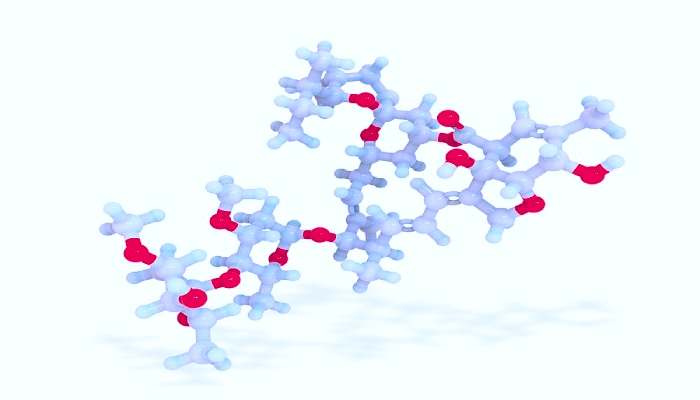Ivermectin Controversies and Research in Non Parasitic Uses
Ivermectin, an FDA-approved drug traditionally associated with treating parasitic infections, has recently catapulted into the global spotlight, transcending its conventional applications. Originally developed for veterinary use, it rapidly gained acclaim as a life-saving medicine for humans, effectively treating diseases like river blindness and intestinal strongyloidiasis.
However, with the advent of the COVID-19 pandemic, Ivermectin’s potential role expanded dramatically, drawing intense interest for its possible efficacy against the novel coronavirus. This shift in focus has led to numerous randomized clinical trials, some of which have explored the effects of high-dose Ivermectin. These studies, forming a critical part of the evolving narrative, have been instrumental in guiding the scientific discourse. Subgroup analysis comparing different studies, especially those included in randomized clinical trials, has been pivotal in understanding the drug’s impact in the context of COVID-19.
As this article delves into Ivermectin’s journey from a parasitic treatment to a controversial contender in the battle against COVID-19, it unveils not just the story of a drug but the intricacies and challenges inherent in medical science during a global health crisis. Ivermectin’s newfound prominence is a testament to the dynamic nature of healthcare innovation and the relentless quest for effective therapeutic options in unprecedented times.
Background of Ivermectin
Ivermectin’s journey began in the late 1970s, stemming from a compound found in soil-dwelling bacteria. Its discovery was a groundbreaking moment in the field of parasitology, earning the discoverers the Nobel Prize in Physiology or Medicine in 2015. Ivermectin operates by paralyzing and killing parasites, offering a highly effective oral treatment for several tropical diseases.
Its safety profile, established over decades through numerous randomized clinical trials and widespread use, has made it a cornerstone in global anti-parasitic strategies. Traditionally, Ivermectin has been used in humans for treating onchocerciasis (river blindness), lymphatic filariasis, and scabies, among other parasitic infections. These uses have been well-supported by clinical trials demonstrating the drug’s effectiveness, even at high doses, with a low incidence of adverse events.
Furthermore, Ivermectin’s role extends beyond human medicine into veterinary care, where it is widely used to safeguard the health of countless animals worldwide. The drug’s success in these areas, both as a treatment and preventive measure, has been so profound that it has significantly reduced the burden of parasitic diseases in various regions, particularly in Sub-Saharan Africa. This widespread use in diverse settings underlines the versatility and reliability of Ivermectin treatment.

Ivermectin and COVID-19: Initial Interest and Research
The potential repositioning of Ivermectin as a treatment for COVID-19 was sparked by early laboratory studies, which suggested an inhibitory effect on the replication of SARS-CoV-2, the virus causing the pandemic. These preliminary findings, hinting at a significant association between Ivermectin use and viral load reduction, led to a flurry of interest, bolstered by the drug’s known safety profile and wide availability. A systematic review and meta-analysis of these initial studies further fueled the global curiosity and optimism regarding Ivermectin’s role in combating COVID-19.
Around the world, clinicians began exploring the use of Ivermectin, often relying on observational studies and anecdotal evidence. These early reports, some considering single dose Ivermectin, indicated potential benefits in reducing viral loads and improving recovery times in COVID-19 patients. Subgroup analysis comparing these studies sought to differentiate the primary or secondary outcomes attributable to Ivermectin treatment.
However, it is imperative to recognize that these initial studies and anecdotal experiences, despite their promise, were not definitive. Rather than offering conclusive proof, they served as a catalyst for further in-depth investigation and rigorous review and meta-analysis to establish a clearer understanding of Ivermectin’s efficacy against COVID-19.
Clinical Trials and Outcomes
The burgeoning interest in Ivermectin, an FDA-approved drug, as a potential treatment for COVID-19, has spurred the initiation of various randomized clinical trials. These trials, with their diverse scales and designs, have played a critical role in evaluating the efficacy and safety of Ivermectin for patients battling the virus. Among these, numerous studies suggesting a significant association between the use of Ivermectin and improved COVID-19 outcomes have come to light. These studies have contributed to a broad spectrum of findings, highlighting potential areas where Ivermectin may facilitate significant clinical improvement and reduced disease severity in patients with COVID-19.
Encouragingly, some of these trials demonstrated positive outcomes, including a reduction in the severity of COVID-19 symptoms, a decrease in the duration of illness, and a lowering of viral loads in patients. However, despite these promising results, the trials also carefully monitored for adverse events and exposure secondary outcomes recovery, ensuring a comprehensive understanding of Ivermectin’s safety profile in the context of COVID-19 treatment.
A notable contribution to this body of research was the TOGETHER Trial, a large-scale, randomized clinical trial conducted in Brazil. This study played a pivotal role in providing more definitive answers regarding Ivermectin’s effectiveness in treating COVID-19. While the results presented a mix of outcomes, they did reveal certain positive trends, thereby highlighting the potential role of Ivermectin in COVID-19 treatment strategies. Subgroup analysis comparing studies within this trial and others included in randomized clinical trials has been crucial in understanding the variations in patient recovery and outcomes.
Acknowledging the significance of these findings, the scientific community continues to advocate for more high-quality, large-scale randomized clinical trials. These trials are essential to further solidify our understanding of Ivermectin’s role in treating COVID-19, given the varied methodologies and sample sizes in the existing research. However, there remains insufficient evidence to definitively conclude Ivermectin’s efficacy, underscoring the necessity of continued research.
This ongoing commitment to research and interest in Ivermectin exemplifies the medical community’s dedication to exploring all viable avenues to combat the pandemic and underscores the pursuit of effective treatments for COVID-19.
Scientific and Medical Community’s Response
The global scientific and medical community has approached the use of Ivermectin in treating COVID-19 with caution, emphasizing the need for evidence-based practice. Major health organizations, including the World Health Organization (WHO), the U.S. Food and Drug Administration (FDA), and the European Medicines Agency (EMA), have not recommended Ivermectin for COVID-19 treatment outside of clinical trials. These stances are based on the current evidence from clinical trials.
Medical and research bodies have underscored the importance of rigorous, well-designed clinical trials to evaluate the effectiveness and safety of Ivermectin in COVID-19 treatment. There is an acknowledgment of the drug’s potential, but also a recognition of the need for more substantial evidence. This cautious approach reflects a commitment to scientific rigor and patient safety, especially in the context of a rapidly evolving pandemic. Ongoing research is being monitored closely, with several studies underway aiming to provide clearer insights.

Challenges and Controversies
The journey of Ivermectin in the context of COVID-19 has not been without challenges and controversies. One significant issue has been the rise of misinformation, leading to self-medication and the use of Ivermectin without medical supervision. This situation has been exacerbated by conflicting reports and premature endorsements of the drug in various forums, including social media. Health authorities have expressed concerns over potential side effects and the risk of diverting attention and resources from more proven COVID-19 treatments.
The ethical dimension of the Ivermectin debate is also noteworthy. The urgency and desperation caused by the pandemic have led to a complex scenario where hope, science, and public health policy intersect. While the enthusiasm for a potentially effective and low-cost treatment is understandable, it underscores the importance of grounding treatment decisions in solid scientific evidence. Balancing the urgency of the pandemic with the principles of evidence-based medicine remains a critical challenge in the ongoing discourse around Ivermectin.
Purchasing Ivermectin Safely: Stromectol Over the Counter in Australia
For those looking to purchase Ivermectin, it is important to do so through legitimate and safe channels. A reliable option for obtaining Ivermectin in Australia is “Stromectol Over the Counter Australia.” This platform provides an accessible way for individuals to acquire Ivermectin legally and safely, ensuring that customers receive authentic medication that adheres to the necessary regulatory standards. It is essential to remember that while Ivermectin is available for purchase, its use, especially for treating COVID-19, should always be guided by the advice of a healthcare professional. By choosing a reputable source like “Stromectol Over the Counter Australia,” individuals can ensure they are getting the correct product in a manner that prioritizes their health and safety.

Patient Experiences and Case Studies
In the midst of ongoing scientific discussions, a multitude of personal narratives and case studies have highlighted the positive impact of Ivermectin in treating COVID-19. Many patients have shared their experiences of significant improvements in symptoms and notably faster recovery times after receiving Ivermectin. These personal stories have played a crucial role in elevating public interest and fostering a sense of optimism about the drug’s potential benefits. Likewise, several healthcare professionals have reported observing encouraging outcomes in COVID-19 patients treated with Ivermectin, further reinforcing these positive experiences.
While these individual accounts offer anecdotal evidence, they provide valuable insights into the potential therapeutic effects of Ivermectin in real-world settings. These narratives serve as a complementary source of information to the ongoing scientific research, offering a human perspective to the drug’s potential efficacy. It is important, however, to consider these experiences in conjunction with data from controlled clinical trials.
The stories of those who have benefitted from Ivermectin contribute to a broader understanding of the drug’s potential role in COVID-19 treatment, underscoring the importance of further scientific investigation to validate these promising outcomes.
Future Perspectives and Ongoing Research
The future of Ivermectin as a potential treatment for COVID-19 remains an area of active research. Many in the scientific community continue to advocate for more extensive, well-structured clinical trials to conclusively determine the drug’s efficacy and safety in treating COVID-19. These future studies are crucial in providing the high-quality evidence needed to guide medical practice.
Ongoing research is not just about validating or refuting Ivermectin’s effectiveness; it’s also about understanding how and why it might work against COVID-19, if it does at all. This involves exploring its mechanism of action in the context of a viral infection, potential dosing strategies, and its use in combination with other treatments. The outcome of this continued research will not only inform the COVID-19 response but also contribute to the broader field of antiviral therapy.
As the world navigates through the pandemic, the story of Ivermectin highlights the dynamic nature of medical science, where new evidence can change practice and perspectives. It underscores the importance of maintaining scientific rigor and adaptability in the face of new challenges. Whatever the final verdict on Ivermectin’s role in treating COVID-19, its journey offers valuable lessons on the complexities of medical science, especially during a global health crisis.
Conclusion
In this context, studies suggesting a significant association between Ivermectin use and improved outcomes in COVID-19 have added a layer of complexity to the debate. These studies, including randomized clinical trials and explorations of single dose Ivermectin regimens, have contributed to a diverse body of research. Yet, despite these efforts, the definitive evidence needed to fully endorse Ivermectin as a standard treatment for COVID-19 remains elusive.
This intricate narrative of Ivermectin in the era of COVID-19 reflects the dynamic nature of medical research, where new findings continuously emerge and challenge established norms. It highlights the necessity of continued investigation, embracing both the potential breakthroughs and the rigorous scientific scrutiny required to validate them. As such, the journey of Ivermectin is not just about a single drug but about the broader endeavor of medical science to respond effectively and responsibly to a rapidly changing global health landscape.
The story of Ivermectin, with its blend of promise and caution, serves as a poignant reminder of the ongoing quest for answers in the face of uncertainty and the relentless pursuit of therapeutic solutions that can withstand the test of scientific rigor and ethical consideration.
